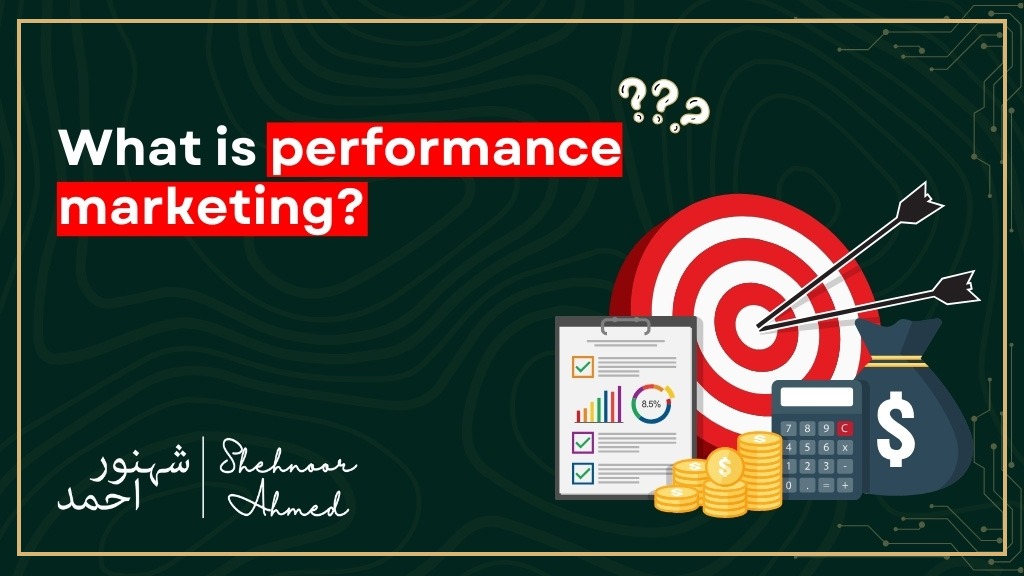
What is Performance Marketing?
The internet has transformed how consumers look for and buy products. It has equally transformed how companies advertise and sell. The development of Omni channel marketing has dramatically raised the capacity to reach and interact with the new customer audience. Nowadays, marketers have the amazing ability to continuously track campaign data and assess the outcomes through performance market in real time. Where attribution was once an impossible task, performer marketers can now increase the performance of their campaigns due to greater data availability. It is for this reason that the term “Performance Marketing” emerged. What Is Performance Marketing? Performance marketing covers internet advertising campaigns where advertisers pay marketing agencies or advertising businesses for achieved outcomes like clicks and conversions. As opposed to paid traditional advertising and organic marketing, performance marketing is focused towards encouraging highly desired behaviors that can be tracked and measured which makes it easier to calculate ROI for every asset, campaign, and activity. While big companies can spend millions of dollars on branding, the objective for most businesses is usually to be profitable. While leading brands can spend millions of dollars on building their brand, the majority of businesses must focus on the bottom line. Digital performance marketing, in a broad sense, gives the most power to advertisers by letting them define the action to be taken and incurring expenses after the sale, lead, or click activity has happened. How is Performance Marketing Different? Usually, advertisers take performance marketing as a whole, which simply means the actions of putting ads on different media channels. Advertisers will pay for an ad space to put their advertisement, whether or not the audience converts. This puts a lot of money on the table with the hopes of performing, but worsening the situation because there are no conversions made. On the flip side, in equity market performance, advertisers only pay when the deal, activity, or contract deemed successful has taken place, and not for the promotion. Performance Marketing vs. Brand Marketing Marketing performance indicators observe your domain nowadays. It is very crowded with brands, and so, separating from others is extremely difficult, therefore raising the brand as an issue is very important. There are many ways of increasing awareness of the brand, including promoting through social media, native advertising, and content marketing. Performance marketing definition may capture some of these strategies because they are results oriented and require payment after work is done. Performance Marketing and Affiliate Marketing This type of marketing, in which individuals receive a payment as a percentage of the measurable sales generated as a result of their marketing efforts, is referred to as affiliate marketing. This entails the affiliate marketer receiving commissions for the sale of many other firms’ goods or services online. An affiliate marketer performs activities targeted at a merchant’s website to drive traffic, increase clicks, and maximize sales of the dealer’s products. The payment is made to the affiliate marketer after they have generated certain amounts of clicks, conversions, or even leads. AI and ChatGPT for performance marketing AI is revolutionizing performance marketing world in unique ways at the level of optimization and personalization. It is surprising how many performance marketing services, including out brain or programmatic advertising platforms, are, in fact, supported by AI. With more advanced algorithms and machine learning, AI can analyze thousands of campaign data points supporting far more precise targeting at scale. That way marketer can modify their campaigns to the right audiences resulting in ads that are more effective and achieve better ROI. Since it burst onto the scene late in 2022, ChatGPT has become the go-to tool for performance marketers to enhance the efficiency of various tasks. Marketers are already using ChatGPT to quickly generate and test multiple variations of ad copy, even as its potential continues to unfold and will do so for many years to come. This not only saves time and effort but also enables marketers to fine-tune their ads to attain higher levels of performance much more efficiently than has ever been possible. Top Performance Marketing Channels Which channels are the most effective in performance marketing world? There are five main types that agencies and advertisers use to drive traffic: 1. Banner Ads If you’ve been online, you’ve probably seen countless display ads. These ads usually pop up on the side of your Facebook newsfeed or at the top or bottom of a news site you’ve visited. While the effectiveness of display ads is waning due to ad blockers and a trend known as banner blindness, many businesses still find success with display ads that feature interactive elements, videos, and eye-catching designs. 2. Native Advertising Native advertising takes advantage of a webpage’s layout to promote sponsored content. For example, you might see sponsored videos in the “Watch Next” section on YouTube. This type of advertising is also common on e-commerce sites; you may have noticed it on Facebook Marketplace. Native advertising works well because it allows sponsored content to blend in with organic content, often making it hard for users to tell the difference, which helps promote your brand more naturally. 3. Content Marketing Content marketing is all about educating your audience. According to OmniVirt, it’s also 62% more cost-effective than outbound marketing and generates three times as many leads. This strategy focuses on providing valuable information to users while connecting it to your brand. For instance, a vitamin company might create a series of informative blog posts about the benefits of probiotics, linking back to their products. Content marketing can take many forms, including blog posts, case studies, e-books, and more. 4. Social Media For performance marketers, social media is a goldmine. It not only allows you to connect with users and direct them to your website, but it also enables users to share your sponsored content organically, significantly amplifying your reach beyond the initial post. While Facebook provides the most comprehensive range for performance marketing services, platforms like LinkedIn, Instagram, and Twitter also present numerous opportunities to attract new customers.



